
Colorado Golf Association







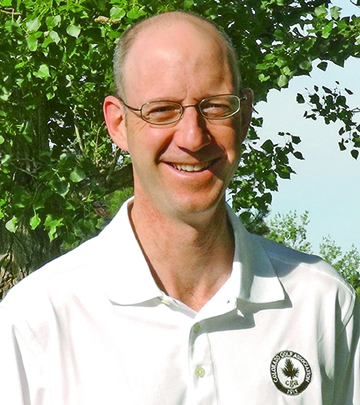
Win One Of Seven Dream Golf Vacations To America’s Top Golf Destinations
by Ed Mate, Executive Director, Colorado Golf Association
If you’ve ever dreamed of playing the best golf courses in America, the Colorado Golf Association (CGA), might just have a ticket with your name on it. This golf season, the CGA, home to more than 60,000 members, is conducting their Dream Golf Vacation Raffle — Presented by BMW. The 2019 raffle features seven grand prize packages including six Stay-and-Play packages at top golf resorts in the country, which feature 12 of the top 50 public courses in the United States, as ranked by Golf Digest. In addition to the Stay-and-Play packages, a grand prize winner will attend the 2019 BMW Championship at Medinah Country Club in Chicago.
This unique raffle supports youth golf programs conducted by the non-profit Colorado Golf Association at its own premier golf facility, CommonGround Golf Course, ranked #4 “Best public places you can play in Colorado” by Golfweek. Programs conducted by the CGA are Youth on Course, the Solich Caddie & Leadership Academy, Hale Irwin Player Program and Community and Wellness program which welcomes organizations such as Special Olympics, Big Brothers/Big Sisters and Denver-area Boy & Girl Scouts.
The grand prize trip to the BMW Championship — the penultimate event of the PGA Tour’s FedExCup Playoffs, set for Aug. 15-18 — will include first-class roundtrip airfare to Chicago, a three-night stay at a host hotel (Thursday to Sunday, including transportation from there to the course) and a $500 gift card for food and beverage. The prize allows the winner to walk inside the ropes with a featured group on Friday of the event, and provides two 18th-hole VIP Hospitality access at Medinah for Friday and Saturday’s rounds.
The featured resorts and courses in the raffle include:
• Bandon Dunes Golf Resort in Oregon (3 nights, 6 rounds of golf for winner and a guest, including caddie fees). Four courses ranked #2, #7, #12 and #14.
• Destination Kohler Resort’s Whistling Straits and Blackwolf Run courses in Wisconsin (2 nights, 3 rounds of golf). Whistling Straits will host the 2020 Ryder Cup.
• Streamsong Golf Resort in Florida (3 nights, 3 rounds of golf for four people).
• Sand Valley Golf Resort in Wisconsin (2 nights for winner and a guest, 3 rounds of golf).
• Fairmount Scottsdale Princess and TPC Scottsdale, Champions and Stadium Course which is home of the Waste Management Open in Arizona (3 nights, 2 rounds of golf).
• The Peaks Resort and Telluride Golf Club Sept. 6-8 (2 nights, 2 rounds of golf), with a 2019 BMW X7 courtesy vehicle to drive to and from Telluride.
All of the stay and plays include $1,000 worth of gift cards for travel, food and beverage, and except for Telluride they can be redeemed through at least the first half of 2020.
Additional raffle prizes include rounds at 40-plus Colorado golf courses, as well as golf merchandise and other goodies. Among the rounds are those offered by Aspen Glen Club, The Club at Cordillera, The Club at Pradera, The Pinery Country Club, Valley Country Club, Eagle Vail Golf Club, Meridian Golf Club, Inverness Golf Club and the Keystone courses.
To purchase tickets and a list of all raffle prizes visit ColoradoGolf.org. Tickets for this state-licensed raffle are $40 each, with no limits placed on the number of tickets that can be bought. The BMW Championship Prize winner will be selected on Aug. 2 and all other winners will be selected on August 22. Contact Ryan Smith for more information at 303-366-4653.
CGA Executive Director Ed Mate

Normally, the Glendale Cherry Creek Chronicle only endorses candidates in Districts which are part of our circulation area. This time, however, we believe this to be a make-or-break election for the future of the city. We are, therefore, endorsing candidates in all runoff races as well as Initiated Ordinance 302. We acknowledge if incumbent Michael Hancock wins his race against Jamie Giellis there is a little hope that the next four years will be any better than the last disastrous eight years. If Giellis wins, however, she will need allies to fight against the high-density developers that are not going to go gently into that good night. Our endorsements are as follows:
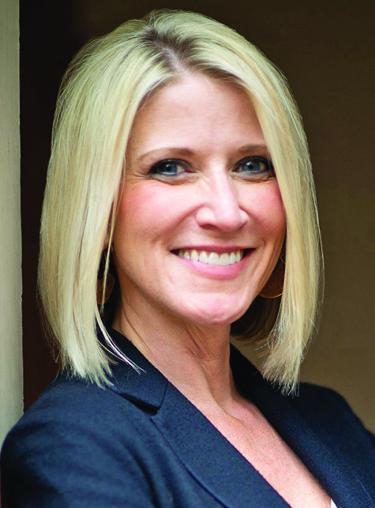
MAYOR – JAMIE GIELLIS. Michael Hancock has been the worst mayor of Denver since Wolfe Londoner (1891-1893) who ended up in jail, which would be the fate of Hancock if there were any justice in this town. Londoner was the puppet of the whisky barons of Denver while Hancock is the tool of the high-density developers. If given a choice between the two, high-density developers have been a far more malevolent force than the whiskey barons ever were. Jamie Giellis is a bright new face with an urban planning background which is badly needed in the city. Can she survive the last minute desperate and vicious mudslinging of his Honor and his allies? We certainly hope so, but only time will tell.

CLERK AND RECORDER – PEG PERL. This one was easy. Paul Lopez is wholly unqualified for the position as he demonstrated in the only debate. Moreover, he has indicated that he will politicalize the position which is exactly what is not needed. Peg Perl is very well qualified to run the office in a fair and equitable manner for all the residents of the city.
INITIATED ORDINANCE 302 – YES. The city dodged a bullet when the Olympic Committee chose Salt Lake City over Denver to bid for the 2030 Winter Olympics. Only high-density developers and certain businessmen wanted to bring the Olympics to Denver and they couldn’t have cared less what the citizens of the city thought. Next time, if this proposal passes, Denver will have to ask the voters of the city what they think before wasting large sums of money for a project that would benefit only a very few.
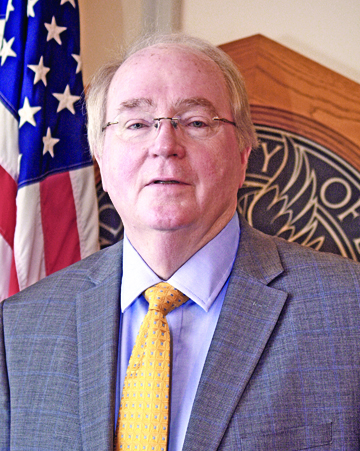
CITY COUNCIL DISTRICT 10: WAYNE NEW. Wayne was one of four councilmen who ran in 2015 opposing the reckless and wasteful developments of Mayor Hancock in Cherry Creek and across the city. Some feel Wayne has not done enough to oppose the Mayor and his policies, but behind-the-scenes resistance leader Rafael Espinoza says Wayne was his greatest ally and fought with him in many of the key fights, not all of which were successful. Newcomer Chris Hinds is an attractive candidate in many ways, but the behind-the-scenes support for him of the city’s unions and people who are often allied with high-density developers make him a risk that he will become just one more person who actually only listens to the rich and powerful in the city.
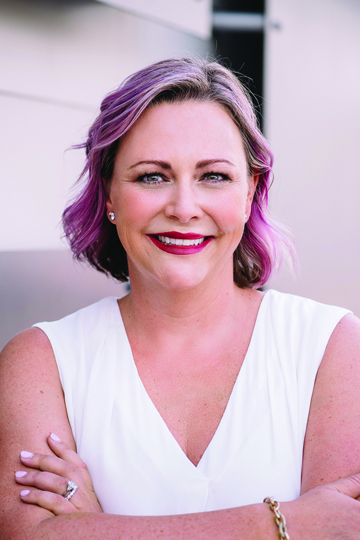
CITY COUNCIL DISTRICT 5 – AMANDA SAWYER. Little controversy here. Incumbent Mary Beth Susman has been the lackey for high-density developers in her District and across the city. She was even caught taking written instructions from developers and their lobbyists on exactly what to say in City Council meetings. Her door knocker advertisement states: “A Leader Who Listens.” Anyone who has been to a City Council meeting where a high-density development is being considered would know that tag line should be: “A Councilwoman Who Listens Only to Developers.” Amanda Sawyer got involved in the race after helping with one of the few neighborhood victories in stopping the ill-considered Green Flats development on Holly. It would be nice to have a councilwoman who actually does listen to the everyday citizens.

CITY COUNCIL DISTRICT 1 – AMANDA SANDOVAL. Hopefully, City Council meetings will have another Amanda on the dais fighting for the neighborhoods that have been ignored for so long. Sandoval has been the chief of staff for Rafael Espinoza, the leader in the fight against high-density developers, and will continue his great work. Her opponent is the intellectually limited fireman Mike Somma who will be little more than a parrot for the city’s unions.
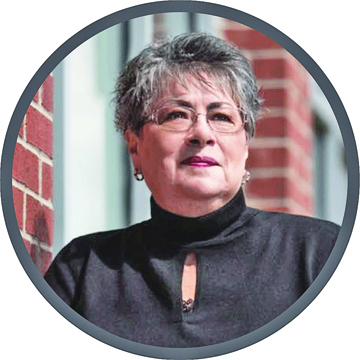
CITY COUNCIL DISTRICT 3 – Veronica Barela. In District 3 there is only one candidate who has expressly opposed the disastrous Sloan’s Lake mega project sponsored by the outgoing councilman Paul Lopez and the Brownstein Farber Law Firm. Barela’s longterm advocacy for the District demonstrates that she is willing to fight against the powers to be in the city. Her opponent is immigration rights activist Jamie Torres who has not demonstrated the same resolve.

CITY COUNCIL DISTRICT 9 – Candi CdeBaca. Last, but not least, this race pits Mayor Hancock’s presumed successor, Albus, “The Buddha” Brooks, who spends his time looking for handouts from the rich and powerful. Candi CdeBaca’s surprisingly strong showing in the initial round indicates that District 9’s residents are tired of being forced out of Denver by high-density developments pushed by Brooks, and are ready for a change.